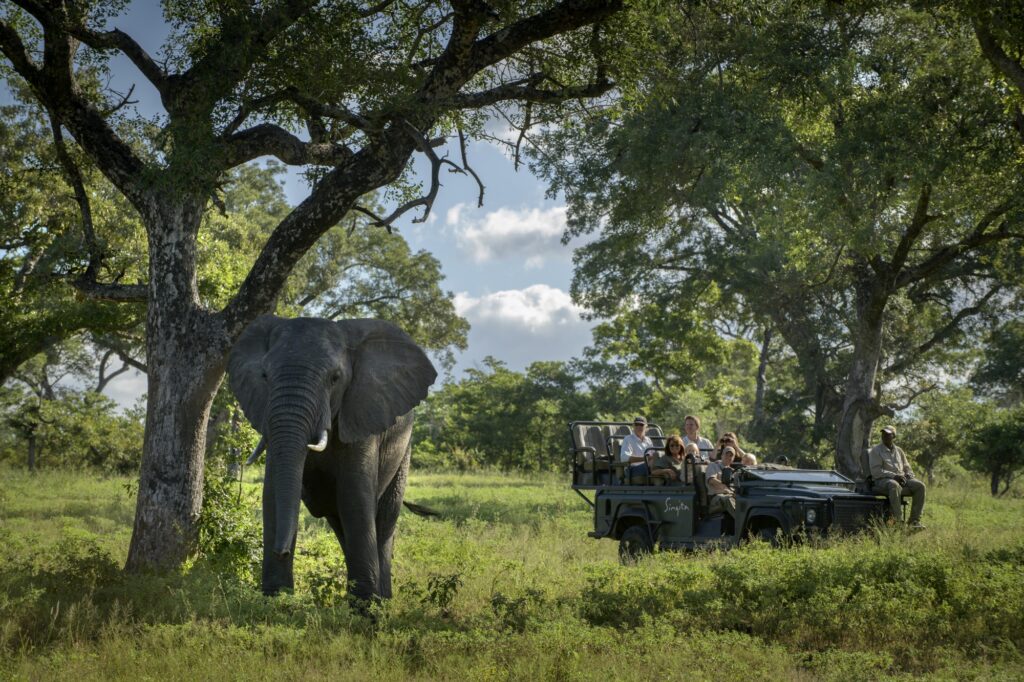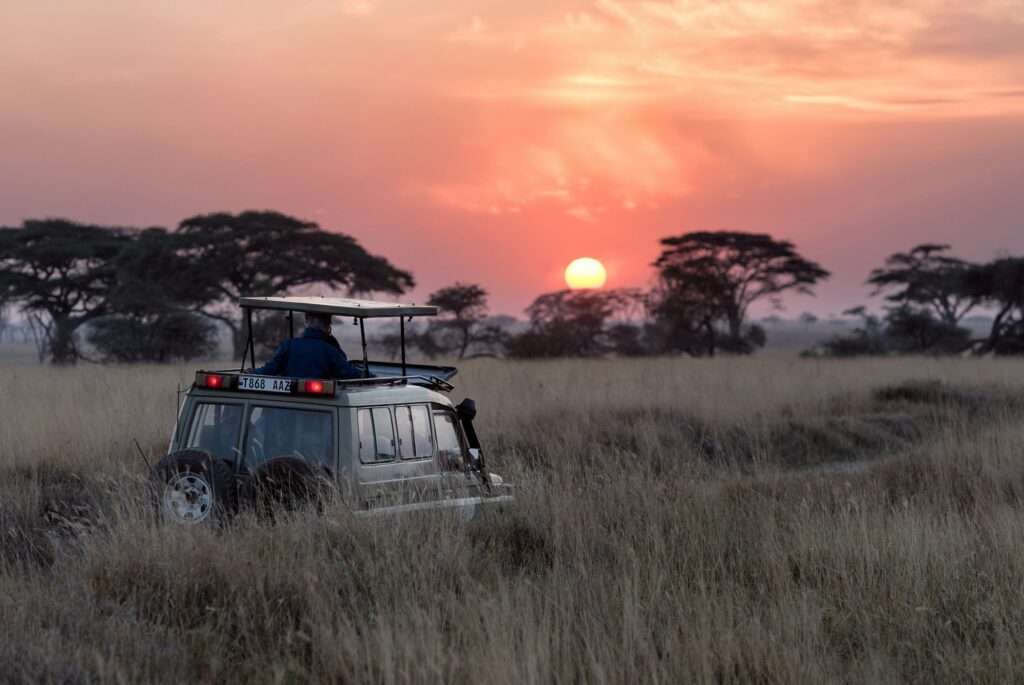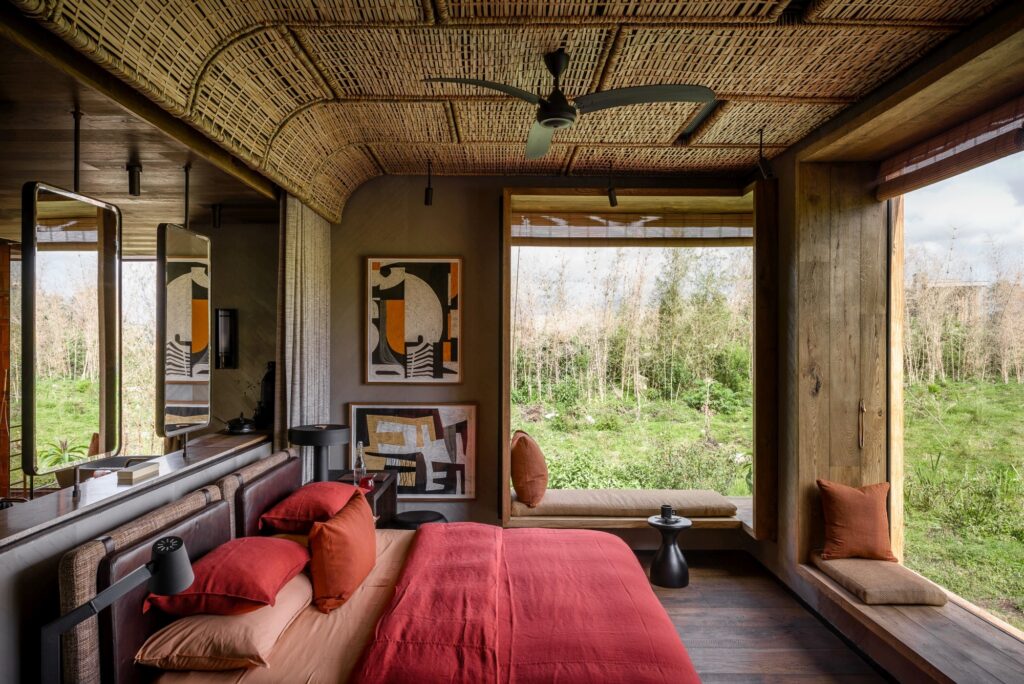
African safaris are often at the top of many traveler’s bucket lists, thanks to their beautiful landscapes, incredible wildlife, and once-in-a-lifetime experiences. However, while the call of the wild just might be irresistible to some, the cost of a trip like this can be more than expected.
“It’s important to understand that going on safari is not cheap, nor should it be,” explains Summer Rylander, a journalist and photographer who specializes in sub-Saharan Africa travel. “The costs cover everything from conservation fees to meals, accommodations, lodge staff, your safari guide, and the vehicles used for game drives.”
Thankfully, with careful planning and a few insider tips, it’s possible to create an experience that’ll suit different budgets without compromising on quality or adventure. Ahead, learn more about how to best budget for an African safari, with tips from an expert.

Tip 1: Research Destination Costs
“As with any destination, accommodation expenses will vary depending on location and level of comfort,” explains Rylander. “A mobile camping safari in Zambia, for example, will cost significantly less than a luxury lodge in Botswana.” What’s more, countries like Tanzania and Kenya (which are home to iconic parks like the Serengeti and Maasai Mara) tend to offer mid-range pricing with a wide variety of accommodation options, while Botswana and Namibia are known for more exclusive, high-end experiences in remote locations like the Okavango Delta and Etosha National Park. On the other hand, South Africa’s Kruger National Park has a range of affordable self-drive safari options, making it ideal for budget-conscious travelers.
Pro tip: Consider the time of year you’re traveling, as prices fluctuate between high, low, and shoulder seasons.

Tip 2: Set a Realist Budget
Here’s the thing: Every traveler needs to have a general idea of a budget that’ll work for them. “Safari costs can vary, but $1,000 per night (not including airfare or tips) is a reasonable starting point for an ethical safari experience,” says Rylander. “Lodges and camps are typically all-inclusive, which means your game drives (usually twice a day), meals, and house beverages will be included.”
That said, it’s crucial to consider all the costs upfront to avoid surprises along the way. Flights most often make up a big part of the budget, especially for international travel, so it’s smart to start by comparing airfare options early. However, Rylander notes that flights might entail more than just the long-haul one. “Some lodges are quite remote and are best accessed by bush plane or helicopter,” she says. This means you’ll need to factor in those costs as well.
Once on the ground, accommodation choices range from basic campsites and mid-range lodges to ultra-luxurious resorts, each with very different price points. Meals may or may not be included in your stay, depending on the package, so be sure to account for food costs if they’re not covered. Park fees are another important factor since they vary from one reserve to another and can add up quickly if you’re visiting multiple parks. Plus, safaris often have guided game drives, walking tours, or even hot air balloon rides, all of which come with their own price tags.

Tip 3: Include Tipping in Your Budget
“Tipping is an important part of safari culture,” says Rylander. “You’ll be logging lots of hours with your guide, whose expertise in the bush will provide valuable context and increase your chances of spotting the wildlife you most hope to see. You’ll also be carefully tended to by the lodge staff responsible for housekeeping, dining service, and mixing up that mid-afternoon gin and tonic–do plan on taking care of them at the end of your stay.” A general rule of thumb is to tip your safari guide around $10–$20 per person per day, while lodge staff can be tipped around $5–$10 per guest, per day. Porters, housekeeping, and other service staff should also be considered. We suggest carrying small bills in the local currency or U.S. dollars (depending on the country) to make tipping more convenient.

Tip 4: Consider a Package
If crunching numbers isn’t your thing, opting for a safari package can be a smart way to simplify things. Many safari operators have all-inclusive packages that bundle expenses, including accommodations, meals, park fees, and game drives, into one price. These packages are often customizable based on your budget and preferences, which will give you some freedom.
As for Rylander’s advice? “It’s definitely worth working with a tour operator who specializes in responsible safari travel. They’ll have the expertise to help you choose a safari destination, plan your accommodations, sort all the logistics, and give advice on packing and tipping. I can happily recommend Far & Wild, Audley Travel, or Journeysmiths.”


